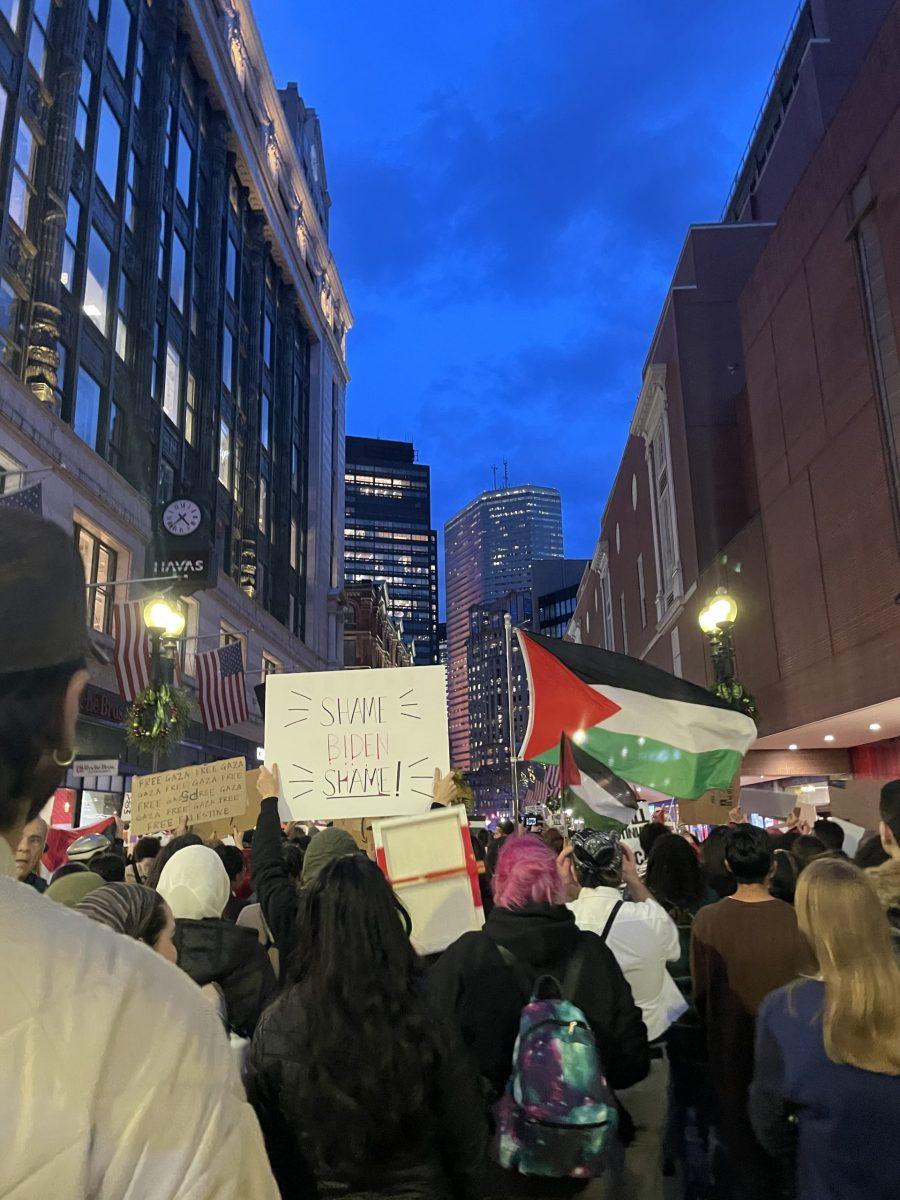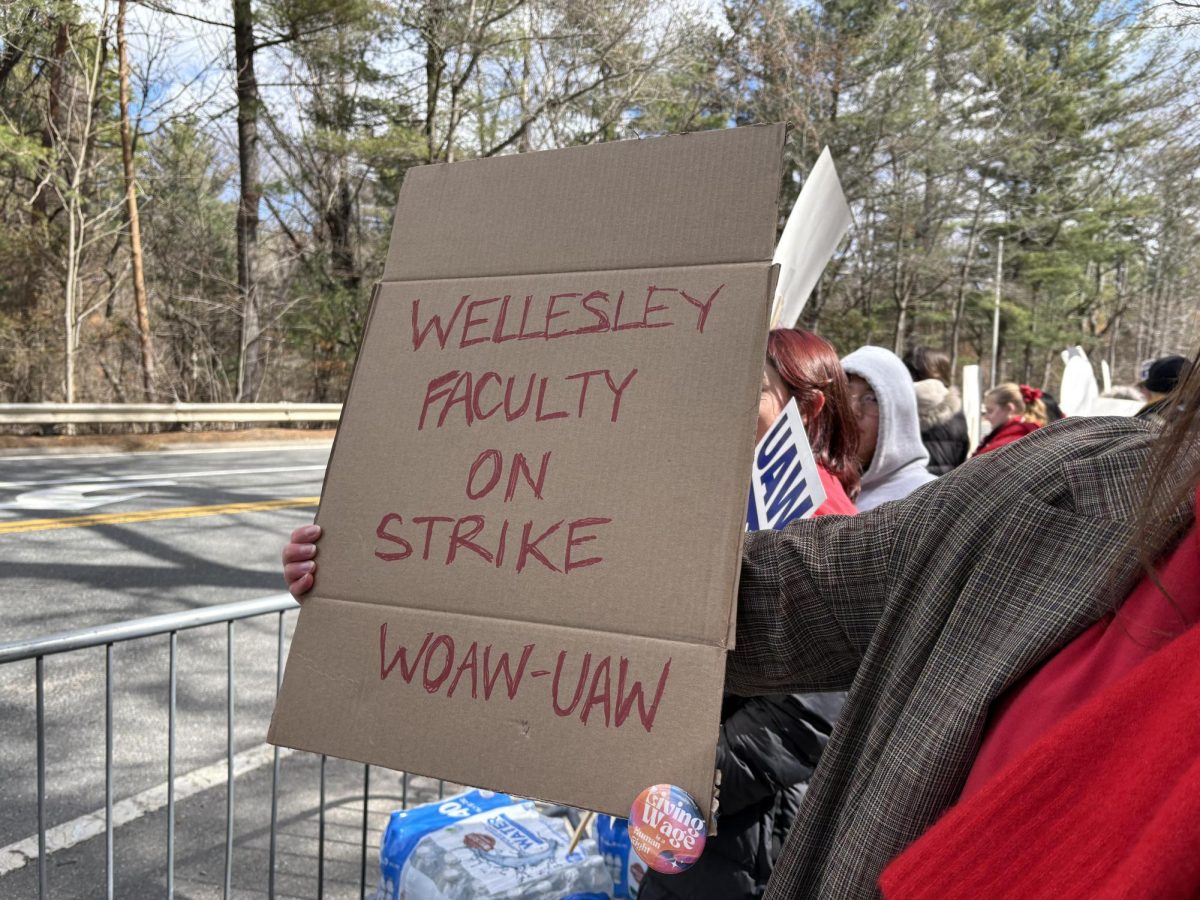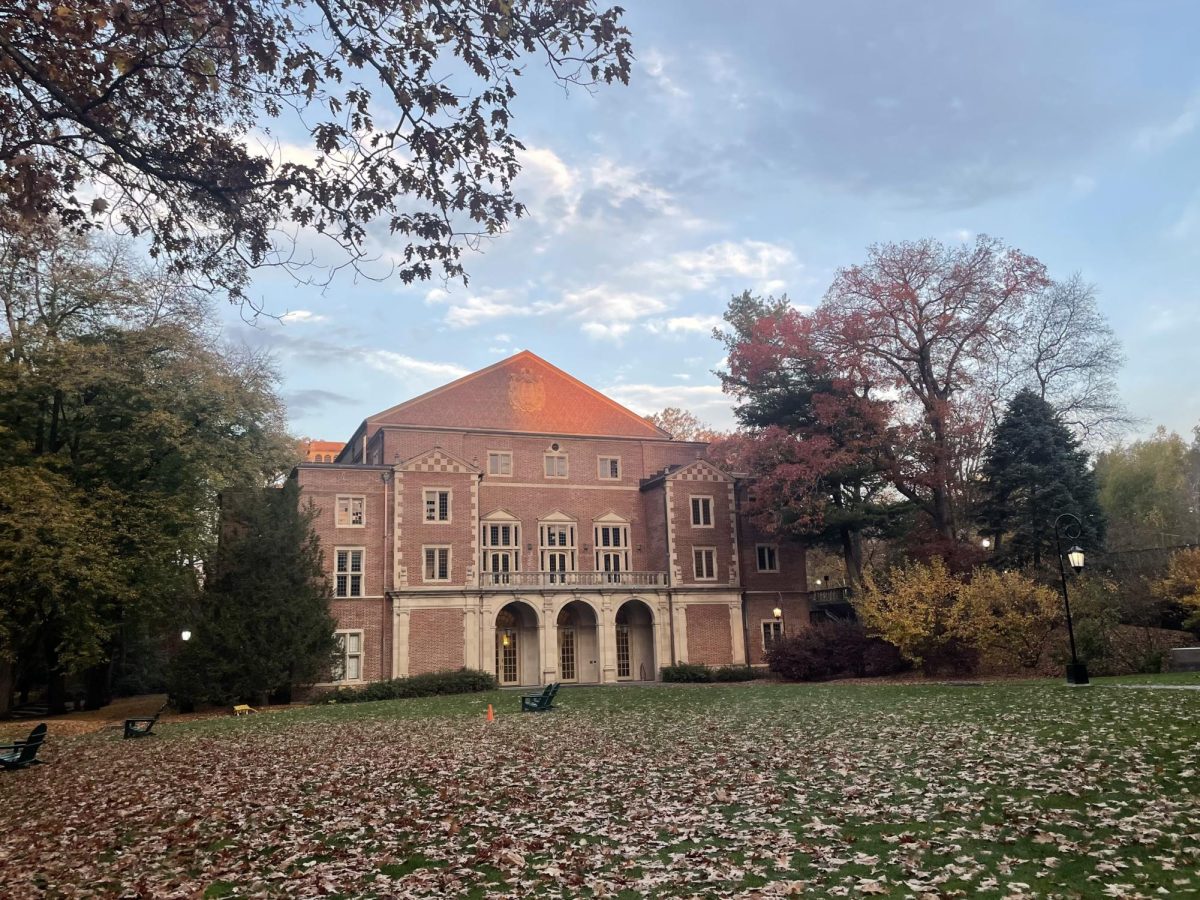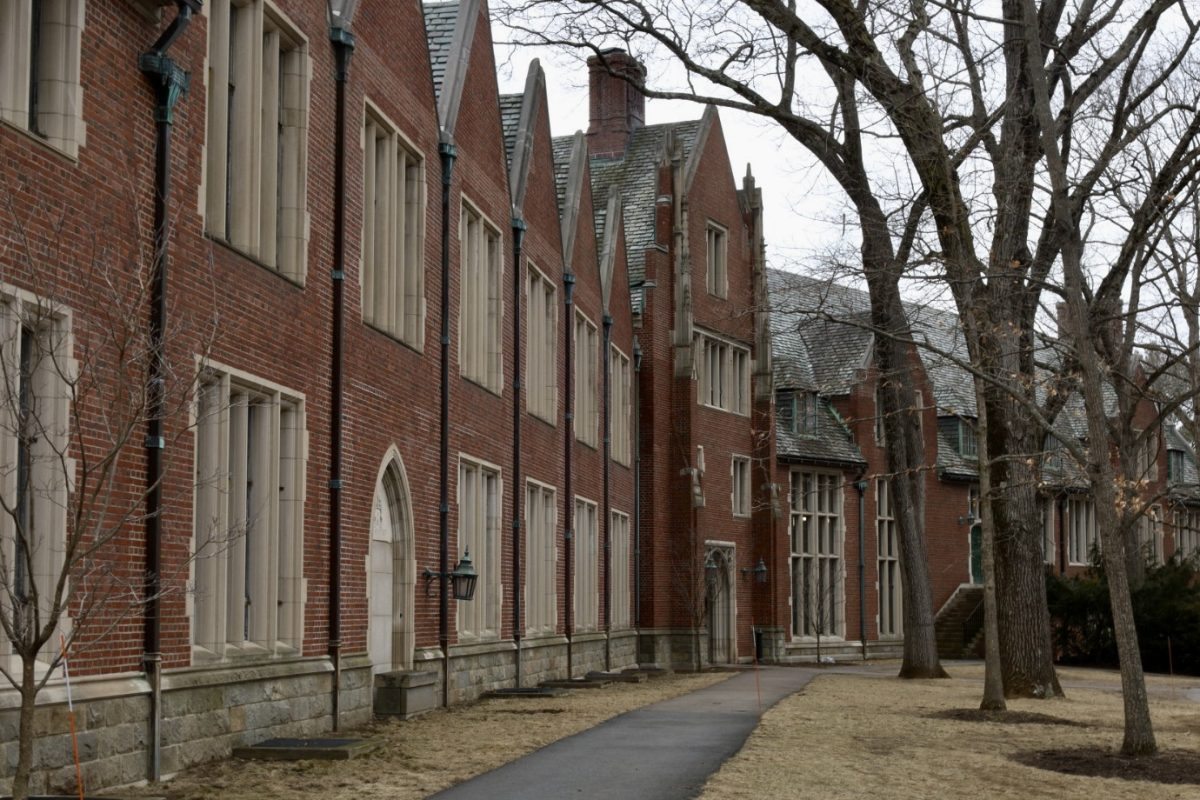As students across the country react to events in Israel and Palestine, Wellesley students are no exception. Although other Boston-area colleges and universities, including MIT, Northeastern, and Brandeis, have seen students organize and attend protests, walkouts, and other demonstrations, Wellesley’s recent demonstrations have been canceled.
One of the student groups leading organization and education efforts at Wellesley is Wellesley for Palestine, mainly operating through an Instagram account (@wellesleyforpalestine). An anonymous contributor to the Wellesley for Palestine Instagram account described the onus for creating the account.
“Wellesley for Palestine is an Instagram account that started because there was a lack of mobilization on campus … because the lack of mobilization was due to fear, Wellesley for Palestine started as an anonymous Instagram account to help inform students about the kinds of mobilization, protests, and efforts that were happening around the Boston area and make people aware of the ways they can get involved,” they said.
They also draw a distinction between Wellesley for Palestine and Wellesley Students for Justice in Palestine (SJP). While Wellesley for Palestine’s goal is to educate students about what protests are happening and how to get involved, their hope for the future is that students focus more on the Wellesley SJP.
“I think everybody should focus more on [the SJP] as opposed to Wellesley for Palestine – I think we served our purpose and would like to clear that up,” the contributor explained.
Wellesley for Palestine organizers planned a walkout on Thursday, November 9, in the Academic Quad. The organizers canceled the protest via an Instagram post, stating that “there are beliefs that our administration plans to honor code students that attend peaceful demonstrations that do not follow the college’s demonstration policy.” The contributor described the organizers’ reasons for canceling the demonstration.
“There was a lot of fear amongst students because the Dean had suggested that students may be honor coded — it was a very vague suggestion with no actual information and so there was this massive fear that that could mean anything,” they explained.
On the College’s policy, protest organizers on @wellesleyforpalestine said, “to threaten honor code violations is a callous response from the administration who has still done nothing to protect the students who have experienced violence, bullying, and aggression online.”
Regarding existing problems with the current demonstration policy, the contributor pointed to a lack of transparency and communication.
“I do feel like there is a lack of communication about what the Honor Code is…I think [there should be] more transparency and more description on what we’d be Honor Coded for,” they said.
Despite the lack of formal protests taking place on Wellesley’s campus, the contributor noted that Wellesley students have been present in large numbers at various protests in the Boston area and beyond.
“Wellesley students were extremely active in protests, not just in Boston, but as well as D.C… there’s a large effort to ensure that we can and that we are doing something, but there could be more, and I’m sad that I can’t see more, and I think a lot of that is because administration works so hard to make people fear speaking out on this campus,” they said.
They also pointed to administration’s conduct as a cause of widespread student fear and lack of mobilization and organization.
“I think the communication or the language administration uses and their habits have silenced the student body and made them fear speaking out, especially when there is a large chance administration or [President Johnson] will release an email basically telling everybody what happened and opening the doors for people to dox students…I think those tendencies, while they might not outright Honor Code someone or punish someone…starts a rolling effect of doxxing — I can confidently say that I believe administration enables and empowers students to doxx other students,” they said.
The Demonstration Policy, as is stated on Wellesley’s website, notes, “To ensure that demonstrations do not threaten the safety of others, suppress others’ right to speech, or disrupt the education of students, Wellesley College community members (current students, faculty, and staff) are expected to notify the College via the Office of the Dean of Students, the Office of the Provost, or the Office of Human Resources two days in advance of the demonstration, if possible.”
Dhanya Srikanth, Chief Justice of the Honor Code Council, sent an email to the Wellesley student body on Monday, Nov. 13, asking for students’ questions and concerns about the demonstration policy in preparation for a meeting between a group of seven senators, members of CG, and Dean Horton to review the policy.
“Students are very accurately identifying some of the vagueness in certain parts of the policy and asking questions around them,” she explained.
In the wake of student confusion, College administration has taken some steps to clarify the policy. In an email to students on Friday, Nov. 17, Dean Horton clarified: “The content of the demonstration, i.e. the reason that students are demonstrating, is not part of the required information.”
The meetings between Dean Horton, the College Government, and some senators aim to clarify what sort of confusion exists in the current policy.
“This is kind of to review Admin’s understanding of the demonstration policy and our understanding of the demonstration policy and see whether student understanding is the same — clearly it is not right now,” Srikanth said.
In a recent email to the Wellesley community, President Paula Johnson referenced the working group and reinforced that the College’s motivation behind the demonstration policy is to protect students.
“The policy’s intent is to ensure that sufficient security is in place to keep everyone safe, including those who are demonstrating, and that demonstrations are conducted in a way that does not suppress others’ rights or impact the College’s ability to fulfill its educational mission,” the email read.
Regarding the questions and concerns that students have raised, Srikanth said that many students have brought up the repercussions of Honor Code charges on financial aid or student Visas.
Srikanth clarified, “We don’t know the status of a student’s Visa or something like that, and we don’t know the status of a student’s financial aid when we see them in a case setting…the status of a student’s financial aid will never change in an Honor Code panel sanction — we have no control over that and we do not want control over that.”
According to Srikanth, no Honor Code cases regarding demonstrations have been brought against students this year, and that to the best of her knowledge, none have been filed since the demonstration policy’s implementation in 2018.
The working group that is responsible for reviewing the demonstration policy has met once so far, as of Sunday, Nov. 19.
“This set of meetings will help decide if there needs to be changes — we’re being very honest about what the students are feeling and where the disconnect is between what Admin wants and what is possible,” Srikanth explained. “I think it was a productive meeting in that we all got to voice our disagreements in a healthy way. I wouldn’t say we reached a full understanding yet, but that’s why there [are] future meetings.”
These initial meetings may not result in formal, written changes to the policy, but if the group finds that revisions should be made, a new group will likely be formed to undertake this task. While this means that there will be no changes to the demonstration policy, at least during this semester, Srikanth is optimistic about the meetings’ potential to clarify the existing policy and to address some of students’ concerns.
“The purpose of this initial set of meetings is to also make sure that Admin and students know about the other roots that we have, like protecting students’ identities through the proxy so that we can ask questions. So even if there aren’t written changes to the policy, I’m hopeful that this set of meetings will make it clear to students that they have an opportunity to exercise their rights — they don’t have to worry about their financial aid, or their visas or things like that,” Srikanth said.
She concluded, “I and Honor Code Council…stand unequivocally behind students who want to engage in peaceful protests, and we’re totally for freedom of expression.”
Mikayla Tansil, the Community Organizing and Inclusion Liaison (COIL), discussed the future of organizing at Wellesley and her role as COIL.
“From a COIL perspective, it is my job to assist students in their student organizing efforts, to make sure student voices are being heard, to uplift and promote advocacy,” she explained.
Tansil discussed the existing demonstration policy and the existing ways that students can best avoid putting themselves at risk of Honor Code violations.
“In order to avoid violating the demonstration policy as it stands, even though I’m working to change that, there has to be some sort of notice to administration…that is what’s been occurring as the main way in which — like Dean Horton was saying at Senate — in which students have been violating the policy,” Tansil said.
As for possible future changes to the demonstration policy and its provision, Tansil said that at least in regards to notifying the College, there could be more avenues for students to take.
“Right now we’re trying to get it to where students can notify me rather than administration,” Tansil explained.
As for the progress of that change, Tansil said, “Dean Horton is fine with people notifying me rather than Admin, that’s a change that she is very open to and that we’ve discussed.”
Tansil also discussed the protest fund in the works which will provide resources to students interested in demonstrating. The project, conceptualized last year and hopefully finalized this year, involves the Community Organizing Resource Collective (CORC) obtaining protest supplies from markers to hand warmers and allocating them to organizers based on the organizers’ requests. Although the current plan for the protest fund does not currently have provisions in place for allocating resources to organizers who want to remain anonymous, Tansil emphasized that the organization of the protest fund and its resources are independent of College administration.
“This is completely student-run, this is something that [CG] as a governing body [has] decided to take on — I wasn’t necessarily looking for money from the College, but rather having this be a student-hedged project,” Tansil explained.
As for the future of organizing on campus, Tansil said, “I think it’s very important that students continue to raise concerns, whether that be simply regarding Wellesley administration… or problems that are much bigger than Wellesley, because this is a place in which students should not be and cannot be silenced.”
On Wednesday, Nov. 22, President Johnson sent a college announcement to the Wellesley community, noting that the College “condemns antisemitism, along with anti-Muslim, anti-Arab, and anti-Palestinian discrimination, and any other form of hate.”
The contributor to Wellesley for Palestine discussed their thoughts on the email and the most recent administration response.
“It was an email long overdue — I think the email was a result of immense pressure…The message was nice, the message was definitely necessary — I hate that we had to beg for it.”
Moving forward, Both Tansil and Srikanth emphasized their roles as proxies and the fact that while they bridge the gap between students and administration, they are not administration.
“I hope people remember that I’m a person and I’m a student — talking to me doesn’t mean you’re talking to Admin,” Tansil said. “It should be felt that we can be included when there are concerns — I want to be in the conversation if there’s a concern with Admin response, or a concern with ‘if I do A, will B happen’ — I want to be the person that can facilitate that conversation and provide information.”
Sazma Sarwar contributed to the reporting for this article.




